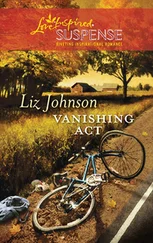She resumed her walk, listening to the birds for the right kind of call. The one she needed was different from the deep-woods birds’. Those all made some metallic, low-register thunk or vit or whit. She walked and listened for a warble. When she heard it she walked toward it, and came out into a mountain meadow. The thrushes, birds like the robins at home, might eat a lot of things, but right now they would be looking for the first berries. She walked the margin of the meadow until she found them. There were wild strawberry plants growing in a patch on the east side of the meadow, where the sun was the strongest. It took her some time to find enough that had turned red, but she ate the green ones too. They were hard and tart, but they wouldn’t kill her. She found rain water collected in some of the lower parts of the meadow and drank from the puddles.
As she crossed the meadow to look at some bushes that might be blackberry plants, she almost stepped on the antler in the weeds. It was big—what hunters called an eight-point rack—but this was only half of it. When she picked it up, she could imagine the scene. The snow was probably still on the ground when mating season started. Two bucks had fought here until one of them had broken this antler. The other had gotten the does, and this one had gone off to sulk and grow a new one. She stuck it into her belt with the war club.
The blackberry bushes were something else she couldn’t identify, and whatever they were, they didn’t have berries, but beyond them she found the stand of hickory and maple trees. She took a great deal of care looking for saplings of the right size. She needed ones that had grown straight because they were out in the sun and not stunted or interfered with by their overarching parents.
When she found some, she took out her knife and began to cut, strip, and shape them into ga-no. They needed to be three feet long and so perfectly round and straight that she could roll them between the palms of her hands without detecting a shimmy in the tip. When she had prepared fifteen of them, she set them aside and went to work on the wa-a-no. It was a hickory sapling an inch and a half thick, with a slight natural bend. She made it four feet long and carved bits of it off until she could just bend it with all of her weight. Then she started to work on the bowstring.
Inside the handle of the survival knife were some fishhooks and two hundred feet of monofilament line. She cut three lengths of the fine, transparent fishing line, tied them to a standing sapling, and braided them the way she braided her hair, because it was the only way she knew. When she had braided three strands of three, she braided those three braids, ending up with a nine-threaded string that had a little thickness and body. It took all of her strength to string her bow.
She stopped to listen to the crows in the rookery, and after a time she was satisfied that Martin was not close enough to hear her work on the antler. She found two heavy rocks and used one as a hammer and the other as an anvil to break it. Then she found that by using the knife as a chisel and the war club as a hammer, she could chip pieces from the base that were sharp and roughly triangular, then carve an indentation on each edge. If she split the tips of the arrows a little, she could slide the arrowheads in and tie them in place with the fishing line.
She took the crow feathers and cut them along the quill so the wider side came off in one piece. She feathered her arrows in the Seneca fashion, two lengths of feather tied on with a spiral twist, so they would spin in flight. The trick was to glue both sides in place with a little sticky pine sap so they would stay put while she tied them with the fishing line.
Jane stood up, nocked the first of her arrows, pulled back the string of the bow, and let it fly at a big maple across the meadow. It revolved in flight like a rifle bullet and sank deep into the bark. When she was in college, she had thought how odd it was to give young women physical-education credit for practicing the way Stone Age men had killed bears. Now it seemed odd to her that she had not really known how to use a bow until a Japanese-born instructor had taught her. She had told people she had chosen archery because the only other class that fit her schedule was golf. Now she admitted to herself she had known that it was because the bow reminded her of her father, making her little arrows and letting her play in the back yard with them when she was about ten. She had missed him all the time in college, and it had helped her to feel close to him.
Jane walked to the tree and tried to tug her arrow out, but she found it was in deeper than she had expected. She took her knife and dug it out, then went back to put a new bone tip on it. She was a lot better at this than she had imagined. The old wa-a-no had been made with such a strong pull that most European men who met the Iroquois couldn’t bend them without practice, and probably no woman at all could have done it. But she had made hers a foot longer and more supple than the old ones in the museums.
She took the knife, cut the legs off her jeans, tied one at the bottom, and made it into a quiver to carry her fifteen arrows. Part of the other leg she made into a strap to hold the quiver on her back, and the rest she tied around her waist as a sash to hold her war club, the way the old warriors had done.
She cut five more saplings to length for extra arrows and shoved the remaining pieces of the deer antler into the bottom of her quiver to hold it open. She looked about her for a place to preserve the last five long crow feathers. She found that the only place where they wouldn’t get bent was in the band that held her hair in a ponytail, so she stuck them in and let them hang downward at her back. She stopped and looked up at the sun. It was late afternoon now. She had spent the whole day remembering and making while the crows kept watch.
When she walked away from the mountain meadow, she found that the forest had changed; she could see in it now. The foliage wasn’t just a green wall anymore. It was complex and comprehensible. This was the last remnant of the great forest that had covered all of the land of the Hodenosaunee and beyond. Maybe it made sense to walk in it now, to see that it was still intact, holding the seeds of the same plants that could spread and sprout again after she was gone.
In the old times, the men had come out here prepared with a song about how they weren’t afraid. It was for when they were being tortured, to spit their last breath at the enemy so he would fear the ones who came after: "I am brave and intrepid. I do not fear death or any kind of torture. Those who fear them are cowards. They are less than women ..."
It was as though this had been meant for her, and it made her feel light and small and weak. Killing was what men did, but she was the only Seneca in the forest and she would have to be the one.
29
She moved deeper into the forest below the meadow, where the glaring evening sun hit the foliage at a low angle to make leaves glow and sink shadows into near darkness. This stand of trees was old, not replanted with one species. Each kind took its small niche and grew there. The collar of pine trees at the top of the mountain merged into the birch, maple, hemlock, slippery elm, and hickory down lower. Where the dirt beneath was deep and the thousands of years of rotting leaves and the mineral water runoff from the peaks had gathered, the trees grew tall and the taproots sunk deep. This group of maples was old and thick, this elm grove had taken hold late, the seeds maybe blown here in a storm twenty years ago, maybe carried here in a deer’s belly and dropped undigested in the right place.
The world she had lived in before, the cement, houses, and roads, wasn’t any different from this. It was wilderness, too. The planet Earth was a place where the lone hunter made his way through the wild country. There was something out there that wanted the hunter dead, and he had to defeat it or be killed by it.
Читать дальше












